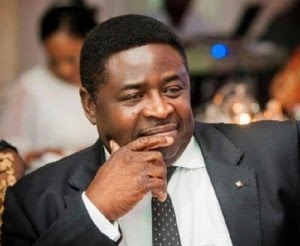By Edmund Mingle
Dr. Michael Abu Sakara Foster, the 2012 presidential candidate of the Convention People’s Party (CPP) has advocated a six-year one-term presidency for Ghana.
That, he believed would provide adequate time for governments to effectively implement their development plan for the benefit of the country.
According to him, the present four-year term does not allow any meaningful planning and implementation, explaining that the first year was used to study the system and planning, including the appointments of Minister, Chiefs of State, Executives and other officers.
 |
| Dr Abu Sakara Foster |
The fourth year had been used for campaigning for the next elections, leaving a government with only two years for actual work.
“Nothing meaningful can be achieved in two years,” he said, adding that with a six year term, a government would have four years of focused development.
Speaking on political reforms during and consultive meeting with the Institute of Economic Affairs’ Winner-Takes-All (WTA) Advisory Committee in Accra, Dr. Sakara, said the proposal of a five or six-year one term, would also save the country the cost organising election every four year.
The meeting was part of the committee’s series of consultations to solicit views concerning on-going constitutional review process, particularly to address the WTA political system which contributes to the political polarisation of the country.
Mr. Sakara pointed out that the bane of Ghana’s progress has been the lack of continuity in governance, explaining that a prolonged presidential tenure would help to address that challenge.
According to him, countries such as Singapore that started with Ghana after independence, have progressed incredibly due to the benefit of continuity in governance.
“Let us ask ourselves whether our system allows continuity. If no, then we must reform it,” adding that “we start all over after every general elections.”
Dr. Sakara supported calls for an entrenched National Development Plan in a new constitution that would be followed by every government.
He added that there was the need for the more focused development.
Regarding the constitutional reform process, Dr. Sakara cautioned against rushing the process
No comments:
Post a Comment